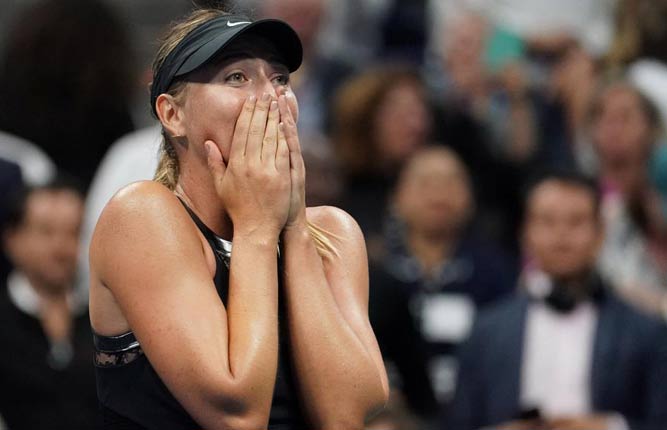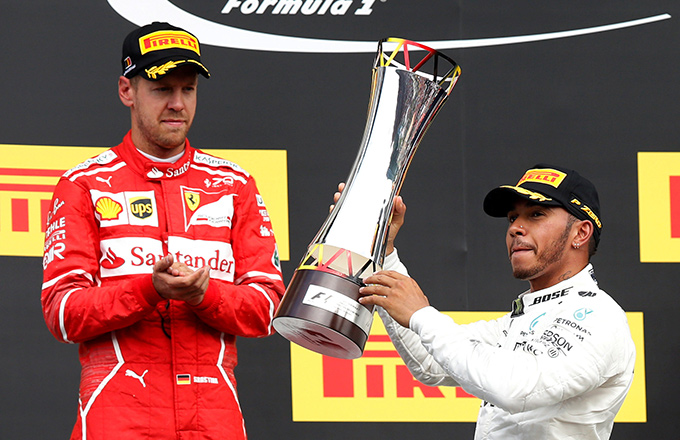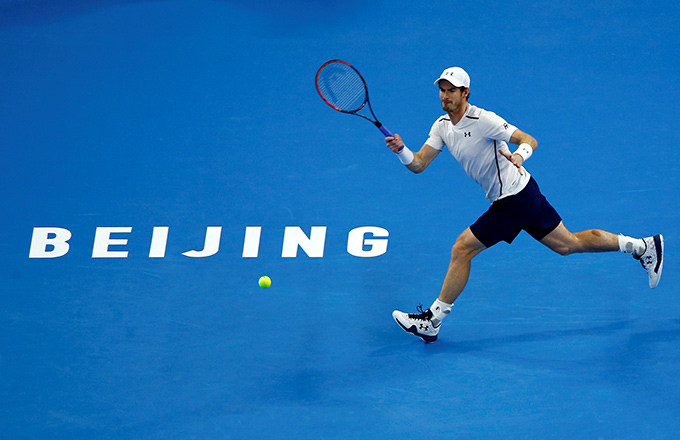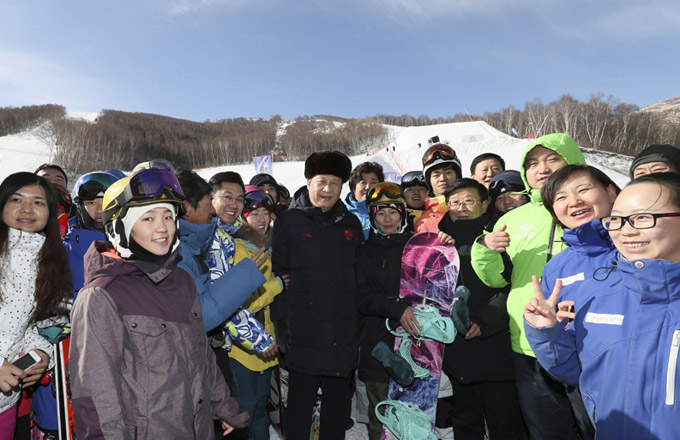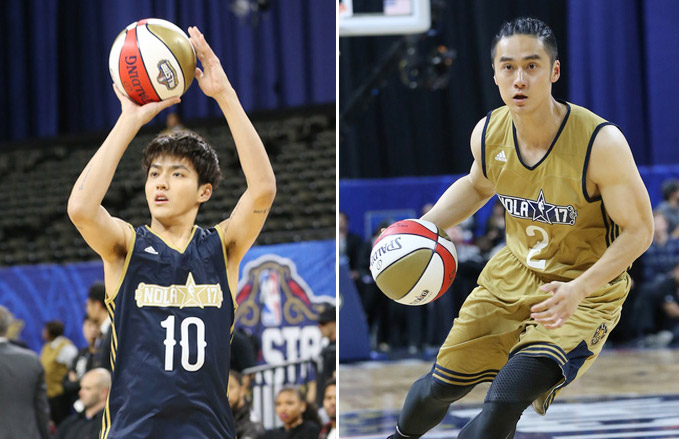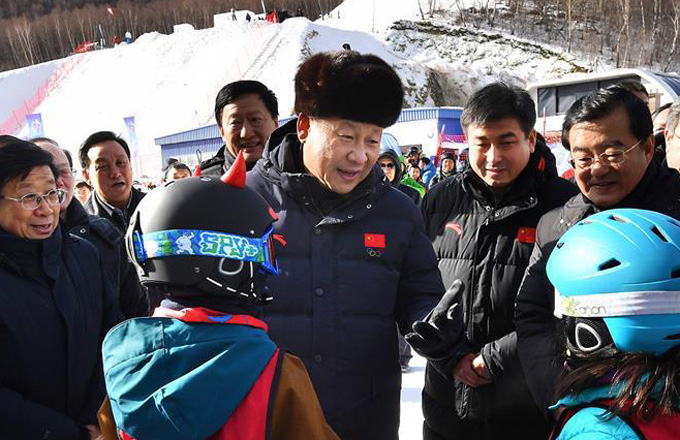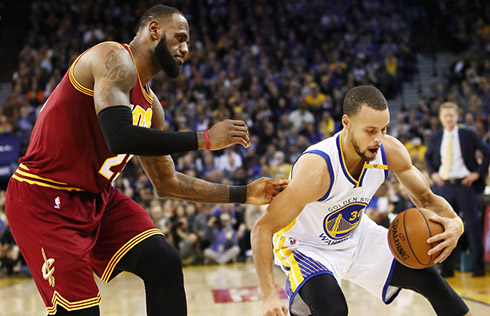Nationals embrace foreigners returning 'home'
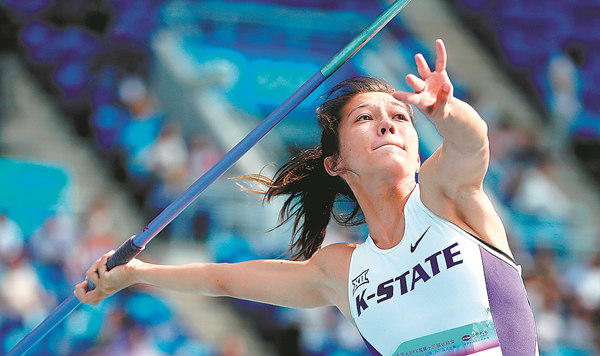 |
|
Nina Schultz, a Chinese-Canadian, competes in the women's javelin throw qualification at the National Games on Saturday. WANG LILI / XINHUA |
Overseas athletes of Chinese ancestry have made their debut at the National Games as China expands its talent search globally for future Olympians.
There are more than 10,000 athletes competing at the ongoing games in Tianjin. But eight have drawn extra attention, not for their athletic achievements, but for their identities.
The eight athletes, who are foreigners of Chinese origin or Chinese citizens living abroad, are the first group to benefit from a reform adopted to allow them to compete at the quadrennial event in Tianjin.
First held in 1959, the National Games used to accept registration only from domestic competitors.
The General Administration of Sport, the top sports body, selected the eight in four sports — shooting, equestrian, swimming and athletics — after assessing dozens of applicants following announcement of the reform in June.
"We hope they are enjoying the big occasion to compete against their motherland counterparts while learning more culturally from each other," said Li Yingchuan, deputy director of the sports administration.
As a veteran among the foreign contingent, shooter Jay Shi stole the show on opening day when he fired in the preliminary of the men's 50-meter pistol competition with intense media attention.
Shi, 38, a citizen of the United States, didn't qualify for the final after shooting 552 points to finish 18th, but he made the best out of the homecoming trip to Tianjin, where he was born and raised until he was 10.
"Athletically, I didn't deliver my best in the qualification, but emotionally it's for sure a worthwhile experience to participate in the National Games and to reunite with relatives here," Shi, a software engineer who lives in Arizona, said on the sidelines of the 50-meter shooting range.
"It was the first time that (competing at the National Games) became possible, and it happened right in my birthplace. The odds were like scoring 10.9 in every shot. I am so excited that I didn't miss it."
After moving with his family to the US for treatment to his right eye, which Shi accidentally stabbed at age 10, he started practicing shooting at a self-made range when he was 26, and he has since overcome the disadvantage of aiming with his left eye while holding the pistol in right hand to improve his skill to represent Team USA at last year's Rio Olympics, where he finished 14th.
With the 50-meter pistol cut from the program of the 2020 Tokyo Olympics, Shi had packed up to retire from the category, but the call from Tianjin inspired him to reload for the one last shootout.
"I couldn't ask for a better place to shoot my last bullet in the 50-meter. I am so grateful for the opportunity," he said.
As Shi enjoyed his swan song in Tianjin, equestrian rider Zhu Meimei, 25, was establishing a promising future to represent China at the Olympics after building a close bond with the sport's authority in her native country.
Born in the US, Zhu has been training in Europe with four-time Olympic gold medalist Ludger Beerbaum of Germany since she chose Chinese citizenship in 2009 with hopes of saddling up at the 2020 Olympics.
The chance to compete against her fellow domestic riders while witnessing their progress at the National Games has enhanced her confidence for 2020.
"Local riders have improved a lot, which makes it possible for us to try to qualify as a whole for the team competition in Tokyo.
The Tianjin event just served as a kick-start for the journey," said Zhu, who won an individual bronze medal in show jumping on her horse, Carmello, in Tianjin.
Olympic equestrian riding features individual and team competitions in dressage, eventing and jumping. China only participated in individual events at two Olympics in 2008 and 2016 without enough entrants.
Zhu also praised the new rule to open the games to overseas Chinese, citing the opportunity to bask in the sense of pride.
"No matter where we were born or raised, it's still an honor to come back to compete as a Chinese, so we shouldn't be counted out," she said.
"I think it's good to show them (equestrian power countries) that the sport is coming out and there are more riders now leaving China to ride in Europe. That's a real step for the sport."
As the country rolls out an ambitious plan to recruit athletes of Chinese descent worldwide for its national programs, the sports governing body is taking the National Games as a trial.
"We set a relatively high benchmark in athletic requirements in assessing the applicants to maintain the competition level. We will optimize the registration procedure and logistical arrangements based on experience this time to attract more athletes to future editions of the games," said Liu Xiaonong, who is the director of the athletic department of the General Administration of Sport.
The administration will work with relevant departments to help overseas athletes convert nationalities to become eligible to represent China internationally, Liu said.





